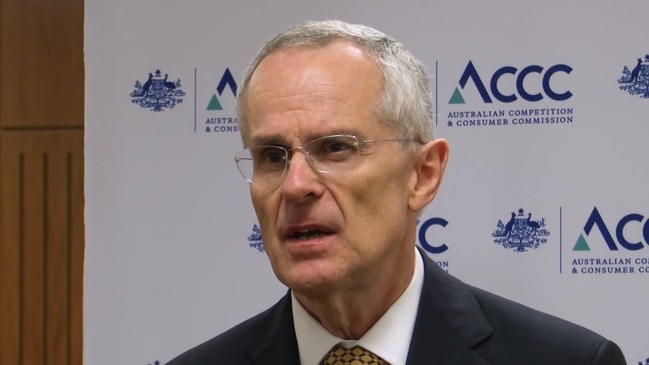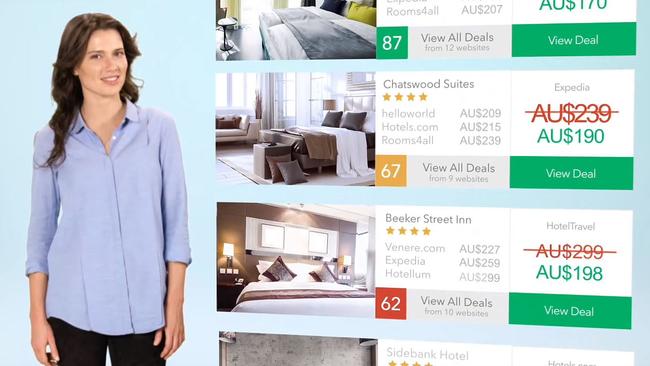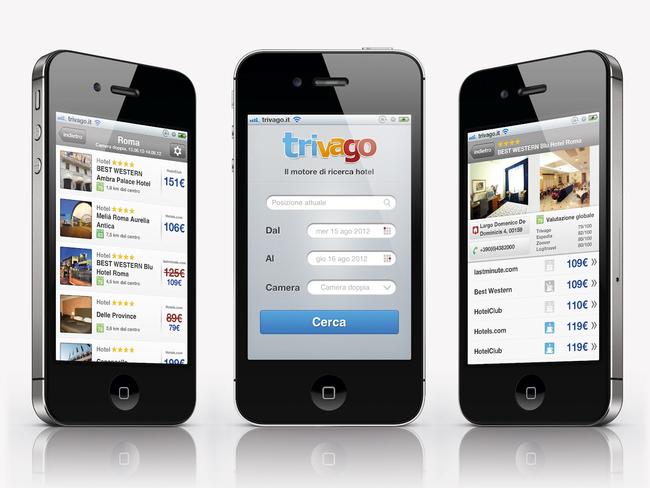Hotel booking website Trivago mislead travellers about the best deals available
Hotel booking website Trivago has been found guilty of misleading travellers into believing they were getting the cheapest holiday deals.

Companies
Don't miss out on the headlines from Companies. Followed categories will be added to My News.
Popular travel website Trivago has been caught red-handed misleading customers into believing they were getting the cheapest hotels deals.
The competition watchdog, the Australian Competition and Consumer Commission, on Tuesday said the site’s online and TV advertising used algorithms that incorrectly ranked the lowest-priced deals.
It now faces penalties running into millions of dollars including compensation to customers.
Instead Trivago put the online hotel booking sites which paid the most to it at the top of its searches.

The Federal Court also found the cost of deals, which were crossed out with cheaper deals, were also misleading.
They gave consumers a false impression of savings when they weren’t actually comparing apples with apples.
The ACCC’s chair Rod Sims said it was “outrageous behaviour”.
“Trivago’s hotel room rate ranking were based primarily on which online booking sites were willing to pay Trivago the most,” he said.
“By prominently displaying a hotel offer in ‘top position’ on its website, Trivago represented that the offer was either the cheapest available offer or had some other feature that made it the best offer when this was often not the case.”
The strike-through prices on its site showing discounted rates compared hotel offers for a standard room versus an offer for a luxury room to make it appear as if the consumer was getting a saving.

The long-running action by the ACCC against Trivago found back in 2018 it misled consumers into believing its site was an impartial and transparent tool to compare hotel room rates.
Trivago ran problematic ads back as far as 2013 but stopped airing them in 2018.
The ads were aired more than 400,000 times.
Mr Sims said it should be a warning to other comparison websites and search engines ranking deals that they need to be honest to consumers.
“If ranking or ordering of results is based or influenced by advertising they should be upfront and clear with consumers about this so that consumers are not misled,” he said.
The Queensland Consumers Association’s spokesman, Ian Jarratt, said the outcome was a great result for those comparing deals.
“Many consumers are time poor, experience information overload and want to easily and quickly make well informed choices,” he said.
“So, it is extremely important that businesses do not make it difficult for them to do so.”
American-based company Expedia Group has a stake in Trivago and also owns other online booking websites including Wotif and hotels.com.
Trivago’s main source of revenue is the cost-per-click is receives were advertises are charged a fee every time a consumers clicks on one of their deals.
A Trivago spokeswoman said they will be closely reviewing the ACCC’s decision.
Originally published as Hotel booking website Trivago mislead travellers about the best deals available

